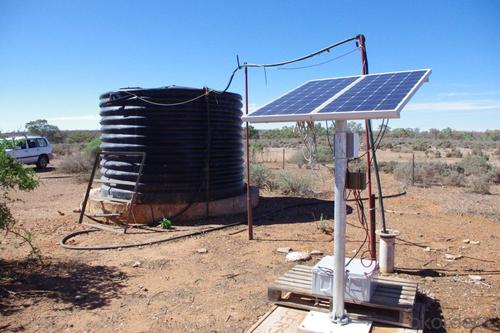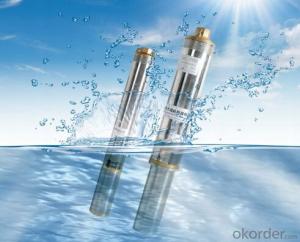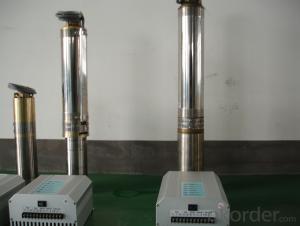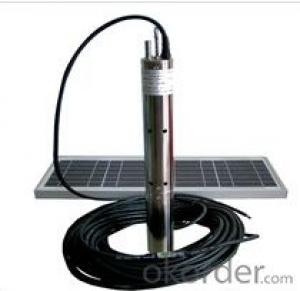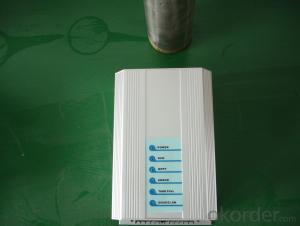Harbor Freight DC Solar Screw Water Pump
- Loading Port:
- Shanghai
- Payment Terms:
- TT OR LC
- Min Order Qty:
- -
- Supply Capability:
- 300 set/month
OKorder Service Pledge
OKorder Financial Service
You Might Also Like
how is the rotor made:
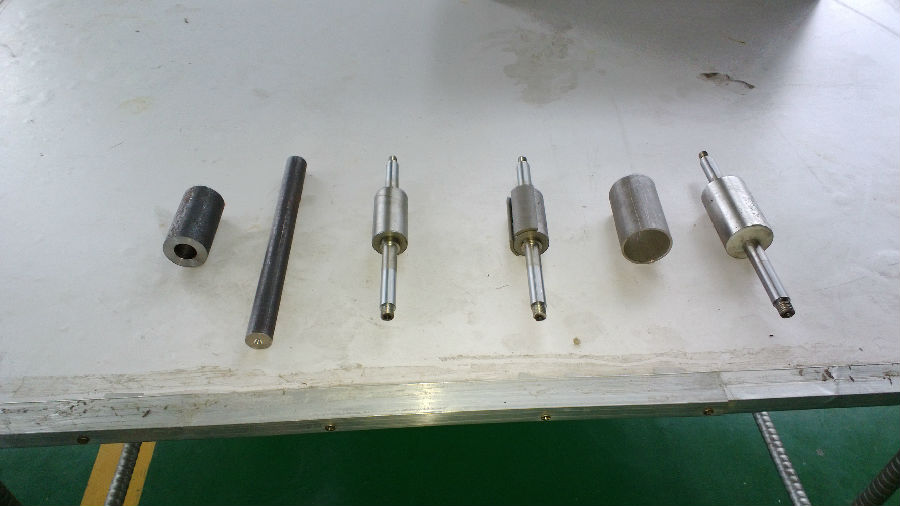
how is the motor made:
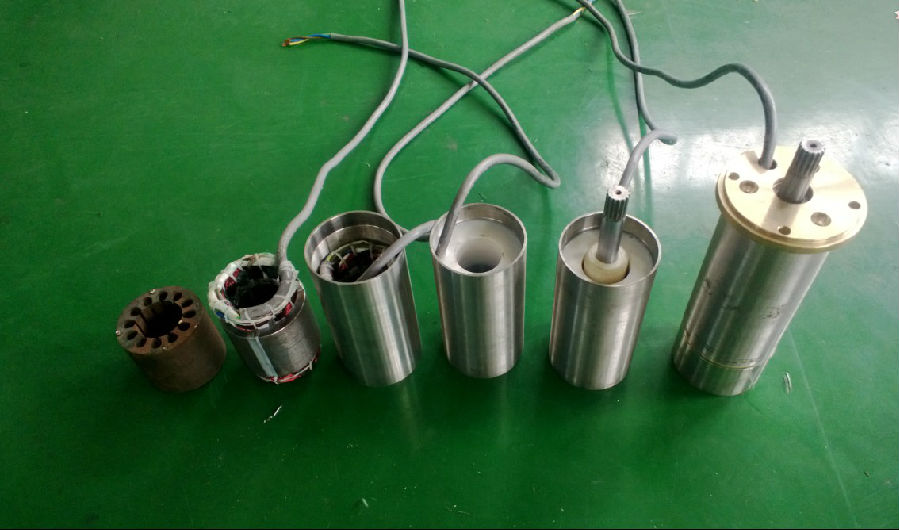
the pump :
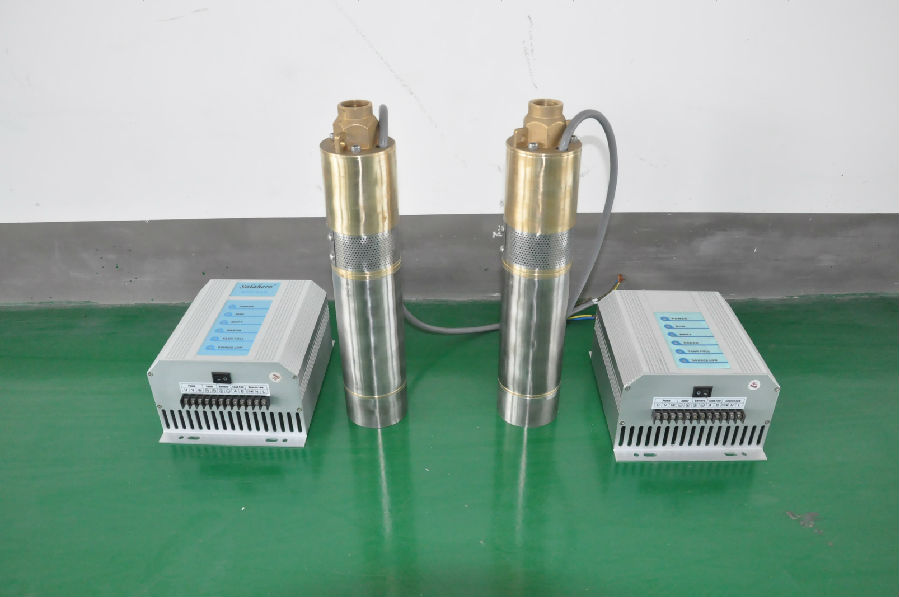
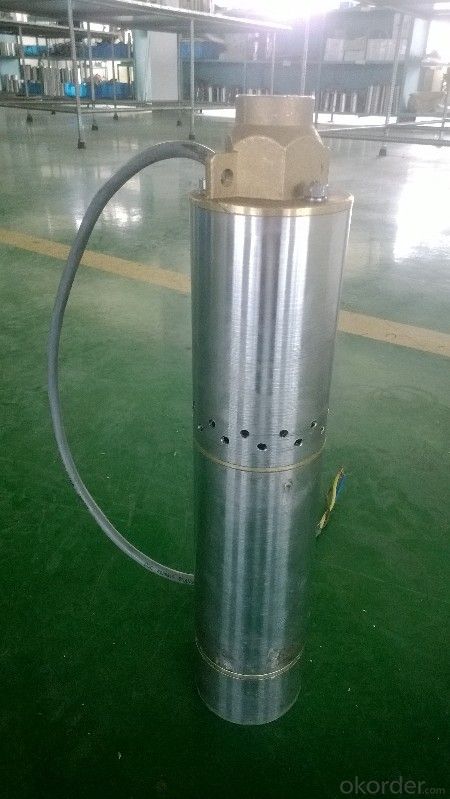
controller terminal connection:
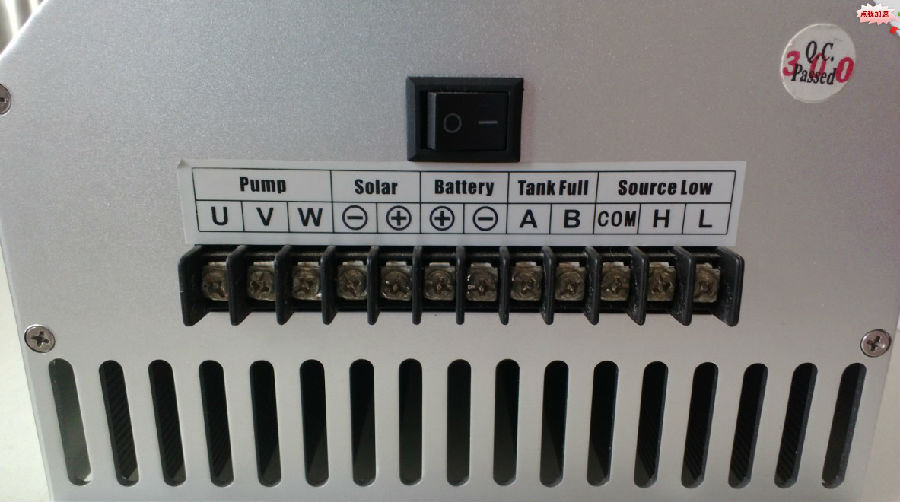
Motor 24V:
1 matainance-free brushless DC motor
2 water filled
3 premium materials,Stainless steel SS304
4 no electronic in the motor
rated power:0.1-0.15kw
effiency:more than 95%
motor speed:1750rpm
isulation class:F
enclousre class:IP68
submersion: max 250m
Controller SPC200:
power:max.150w
input voltage:max.36V
motor current:max.8A
effiency:max.95%
ambient Tem:-20C-----50C
enclosure:IP54
The permanent magnet:

the helical screw:
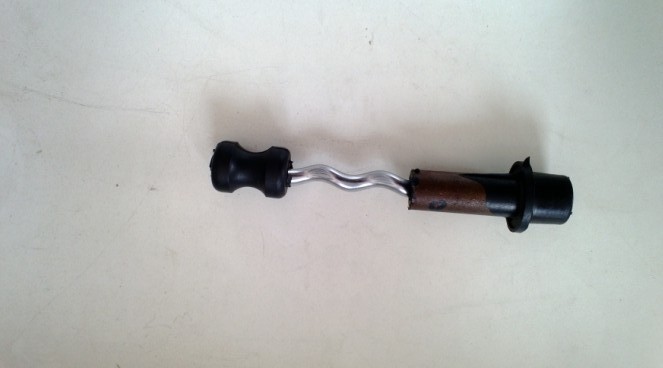
controller box:
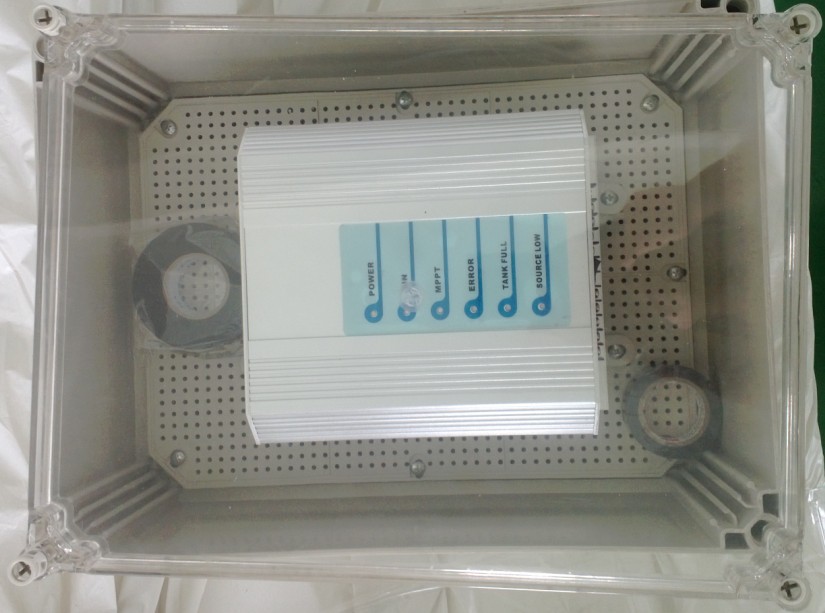
the senors:
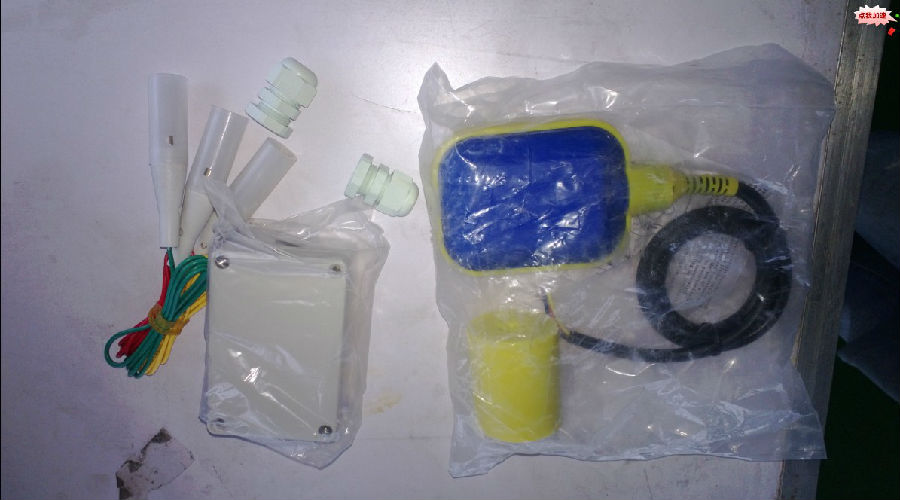
the test:
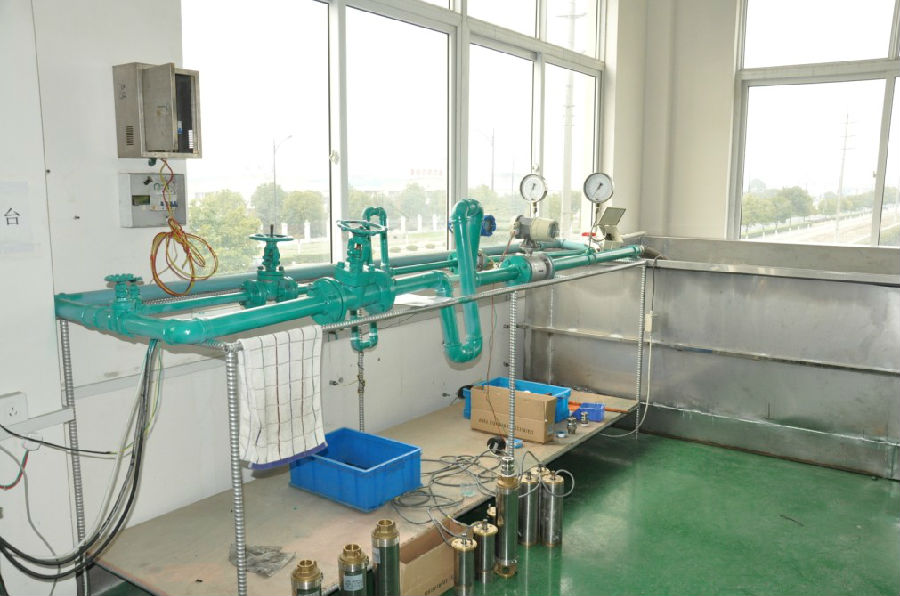
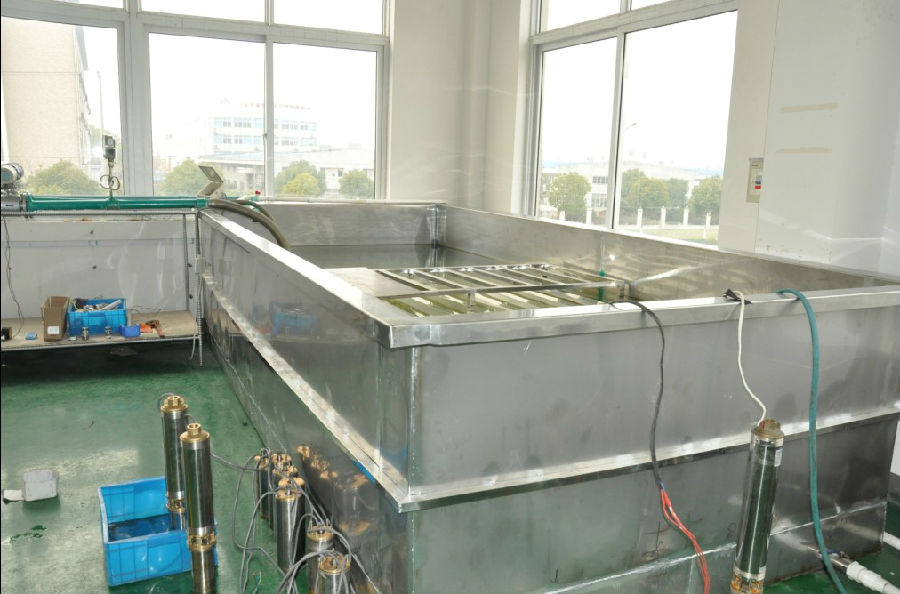
the application:
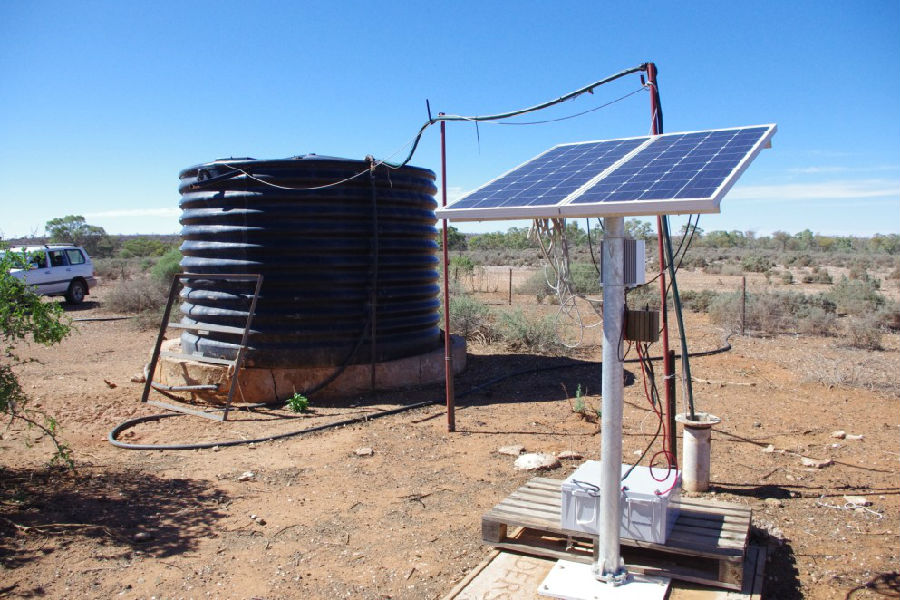

the package:
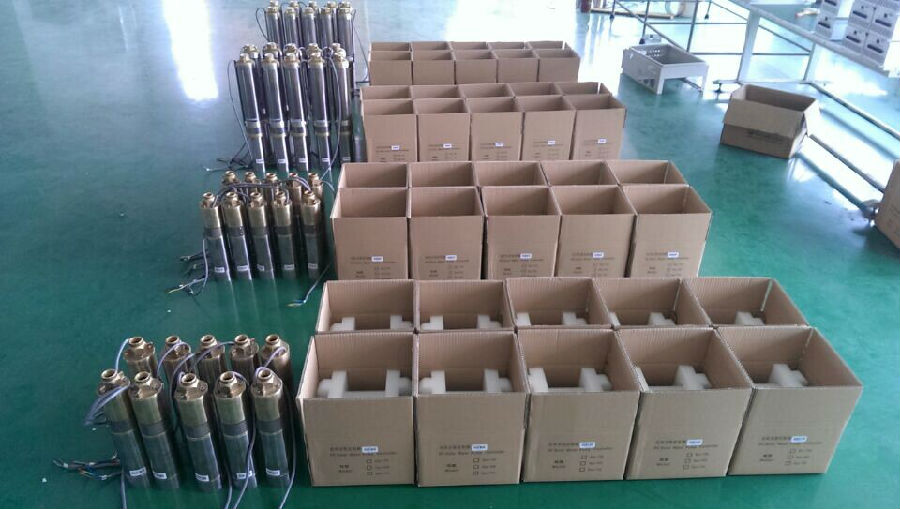
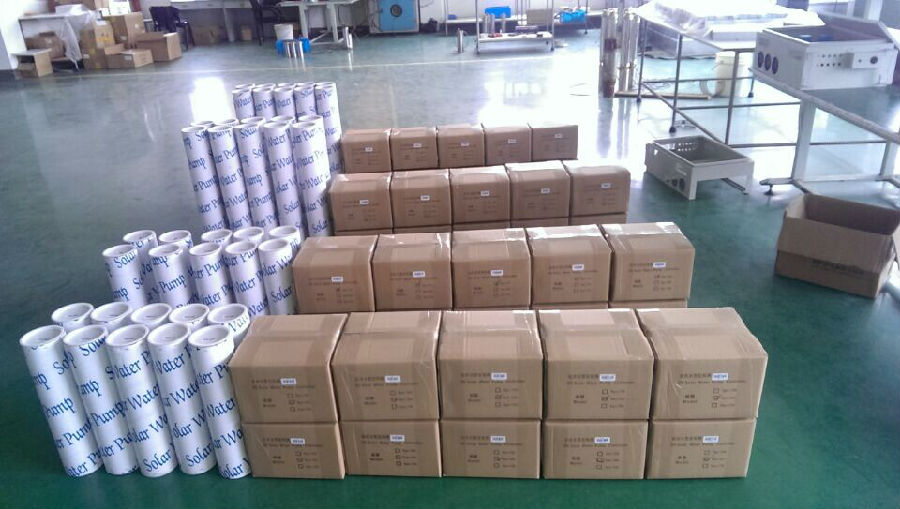

- Q: How does the voltage of the solar pump system affect its performance?
- The performance of the solar pump system greatly depends on its voltage. A higher voltage generally leads to better performance and efficiency. Increasing the voltage directly impacts the power output of the solar panels, allowing for more power generation. This, in turn, results in increased water flow and pressure from the pump, ultimately enhancing its pumping capacity and delivering water faster. Additionally, a higher voltage helps overcome any losses caused by long wire distances or resistance in the system by reducing voltage drop. However, it is important to adhere to the manufacturer's recommended voltage range to avoid damaging the pump or other components. Ultimately, the voltage directly influences the system's performance, so selecting the appropriate voltage within the manufacturer's guidelines is critical for optimal functioning.
- Q: Are there any government incentives or subsidies for installing a solar pump?
- Yes, there are government incentives and subsidies available for installing a solar pump. Many governments around the world recognize the importance of renewable energy and the benefits of utilizing solar power for water pumping systems. These incentives and subsidies aim to encourage individuals, businesses, and organizations to adopt solar pumps as an environmentally friendly and sustainable alternative to traditional pumping systems. The specific incentives and subsidies available may vary by country or region, but they typically include financial assistance, tax credits, grants, and low-interest loans. For example, in the United States, the federal government offers a federal investment tax credit (ITC) that allows individuals and businesses to deduct a percentage of the cost of installing a solar pump from their federal taxes. Some states may offer additional incentives on top of the federal ITC. Furthermore, various international organizations, such as the World Bank, also provide funding and support for solar pump installations in developing countries. These initiatives aim to improve access to clean water and enhance agricultural productivity in areas where electricity supply is unreliable or non-existent. It is advisable to consult with local government agencies, energy departments, or renewable energy associations to get detailed information about the specific incentives and subsidies available in your area. By taking advantage of these government programs, individuals and businesses can significantly reduce the upfront costs of installing a solar pump and contribute to the transition towards a more sustainable future.
- Q: How much power does a solar pump require?
- The power requirement of a solar pump depends on various factors such as the desired water flow rate, head pressure, and efficiency of the pump. Generally, the power range for solar pumps can vary from a few hundred watts to several kilowatts.
- Q: What is the expected energy consumption of a solar pump system over its lifetime?
- The energy consumption of a solar pump system throughout its lifespan may differ based on various factors. To begin with, the efficiency of the solar panels utilized in the system plays a crucial role in determining energy consumption. Panels with higher efficiency can generate more electricity from sunlight, thus reducing overall energy usage. Furthermore, the energy consumption of the solar pump system is affected by the location and climate conditions of its installation. Regions with ample sunlight and consistent weather patterns can generate larger amounts of energy from the solar panels, resulting in lower overall energy consumption. Additionally, the size and capacity of the solar pump system impact its energy usage. A larger system with a higher pumping capacity may require more energy for efficient operation. Moreover, the energy consumption of the solar pump system can be influenced by its maintenance and upkeep. Regular cleaning and maintenance of the solar panels, batteries, and other components ensure optimal performance, leading to minimized energy consumption. Taking these factors into consideration, a well-designed and properly maintained solar pump system can achieve relatively low energy consumption over its lifespan. It is advisable to consult experts or manufacturers to obtain specific energy consumption estimates based on the system's specifications and location.
- Q: Can solar pumps be used for firefighting purposes?
- Yes, solar pumps can be used for firefighting purposes. They are capable of providing water supply to fire hoses and can be an effective and sustainable solution in remote areas where access to electricity may be limited. Solar-powered pumps are often used during wildfires or in areas with unreliable power grids, offering a reliable and eco-friendly alternative for firefighting operations.
- Q: What is the required voltage for a solar pump?
- The required voltage for a solar pump can vary depending on the specific model and application. However, most solar pumps typically operate at low voltages, usually ranging from 12 volts to 48 volts.
- Q: How does the elevation of the installation site affect the performance of a solar pump?
- The elevation of the installation site can significantly affect the performance of a solar pump. As the elevation increases, the atmospheric pressure decreases, resulting in a decrease in the boiling point of water. This can cause the pump to work less efficiently, as the lower boiling point can lead to the formation of air bubbles in the system, reducing its pumping capacity. Additionally, higher elevations may also lead to a decrease in sunlight intensity, reducing the solar pump's overall power output. Therefore, careful consideration of the installation site's elevation is essential to ensure optimal performance of a solar pump.
- Q: What is the expected lifespan of the battery in a solar pump system?
- The expected lifespan of the battery in a solar pump system can vary depending on several factors, including the quality of the battery, usage patterns, and maintenance practices. However, on average, a well-maintained and high-quality battery in a solar pump system can last anywhere from 5 to 15 years.
- Q: How does the angle of incidence of sunlight affect the performance of a solar pump?
- The performance of a solar pump is greatly affected by the angle at which sunlight strikes the solar panels. The angle of incidence refers to the angle at which sunlight hits the surface of the panels. When sunlight hits the panels directly, perpendicular to their surface, it allows for the maximum conversion of solar energy into electricity. This leads to the best performance of the solar pump, as the panels are able to generate the highest amount of power. On the other hand, when sunlight strikes the panels at a shallow or oblique angle, the amount of solar energy absorbed and converted into electricity decreases. This results in a decrease in the overall efficiency and performance of the solar pump. The angle of incidence is influenced by several factors, including the time of day, season, and geographical location. To ensure optimal performance, it is crucial to position the solar panels correctly in order to maximize the angle of incidence. This can be achieved by tilting the panels towards the sun or using tracking systems that adjust the position of the panels to follow the sun's movement throughout the day. Moreover, if the angle of incidence remains consistently low due to factors like shading from nearby structures or vegetation, it can have a significant impact on the performance of the solar pump. In such cases, it may be necessary to make changes to the installation location or remove any obstructions to optimize the angle of incidence and enhance the efficiency of the pump. In summary, the angle at which sunlight strikes the solar panels is crucial for the performance of a solar pump. It is important to position the panels correctly to maximize the angle of incidence and achieve optimal efficiency, ensuring that the pump operates at its highest potential.
- Q: Are there any limitations to the flow rate of water a solar pump can handle?
- Yes, there are limitations to the flow rate of water that a solar pump can handle. The flow rate is dependent on factors such as the size and capacity of the pump, the power output of the solar panels, and the available sunlight. If the solar pump is not appropriately sized or powered, it may struggle to handle higher flow rates. Additionally, factors like the distance the water needs to be pumped and the elevation can also impact the flow rate capabilities of a solar pump.
Send your message to us
Harbor Freight DC Solar Screw Water Pump
- Loading Port:
- Shanghai
- Payment Terms:
- TT OR LC
- Min Order Qty:
- -
- Supply Capability:
- 300 set/month
OKorder Service Pledge
OKorder Financial Service
Similar products
Hot products
Hot Searches
Related keywords


